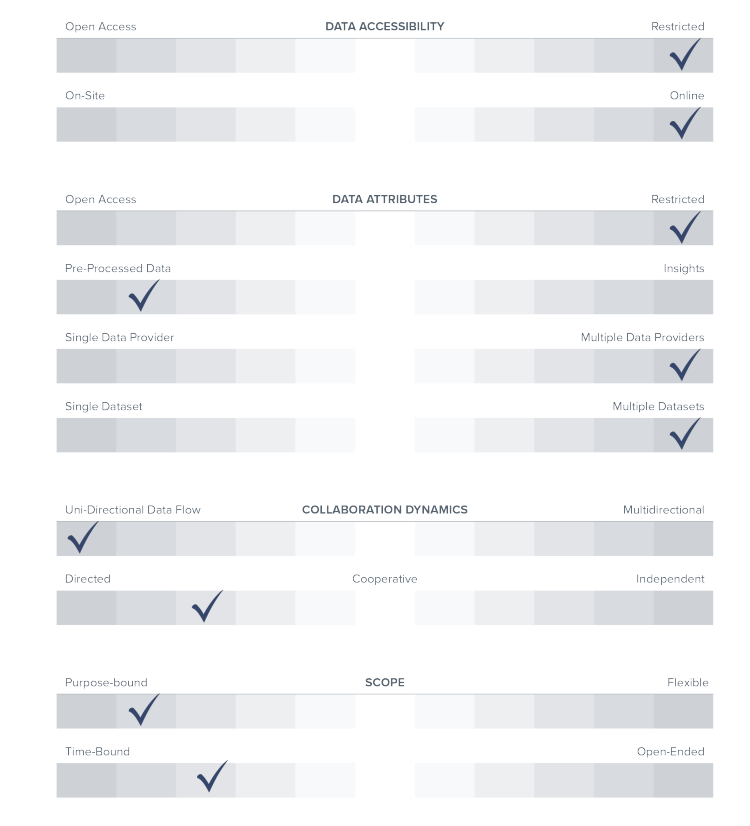Case Study
Data Collaborative Case Study: NYC Recovery Data Partnership
An exploration of an innovative example of data collaboration in New York City
Posted on 29th of March 2023 by Andrew Zahuranec
This is the sixth installment of an ongoing series of case studies on Data Collaboratives and Data Stewardship. These case studies intend to provide insights toward leveraging private data for public good in a systematic, sustainable and responsible manner. Subscribe to our newsletter to be notified of future releases.
***
“A Data Collaborative Case Study: NYC Recovery Data Partnership” is a new report from the Open Data Policy Lab that explores an innovative approach to data collaboration to both describe current practices and provide recommendations to practitioners in the field. Looking at New York City’s Recovery Data Partnership, an initiative to give city agencies access to non-traditional data — data that is digitally captured, mediated or observed using new instrumentation mechanisms, often privately held and used for purposes unrelated to its initial collection — to respond to COVID-19, it examines how cities can establish trusted intermediaries to facilitate innovative research and policymaking while simultaneously noting the challenges this presents in terms of resources, expertise, and complexity.
We invite you to read through this case study. A summary of the case can be found below.
***
Summary: In July 2020, following severe economic and social losses due to the COVID-19 pandemic, the administration of New York City Mayor Bill de Blasio announced the NYC Recovery Data Partnership. This data collaborative asked private and civic organizations with assets relevant to New York City to provide their data to the city. Senior city leaders from the First Deputy Mayor’s Office, the Mayor’s Office of Operations, Mayor’s Office of Information Privacy and Mayor’s Office of Data Analytics formed an internal coalition which served as trusted intermediaries, assessing agency requests from city agencies to use the data provided and allocating access accordingly. The data informed internal research conducted by various city agencies, including New York City Emergency Management’s Recovery Team and the NYC
Department of City Planning. The experience reveals the ability of crises to spur innovation, the value of responsiveness from both data users and data suppliers, and the importance of technical capacity, and the value of a network of peers. In terms of challenges, the experience also exposes the limitations of data, the challenges of compiling complex datasets, and the role of resource constraints.
Data Collaborative Model: In The GovLab’s typology of data collaboratives, this arrangement is classified as a trusted intermediary, a type of collaborative in which third-party actors support collaboration between private-sector data providers and data users from the public sector, civil society, or academia. The NYC Recovery Data Partnership (itself staffed by the Mayor’s Office of Data Analytics, First Deputy Mayor’s Office, Mayor’s Office of Operations and Mayor’s Office of Information Privacy) served as an intermediary to coordinate data exchanges between private sector partners and various NYC agencies.
Data Stewardship Approach: New York City’s work demonstrates the value of a data steward for coordinating many disparate data activities, including outreach to potential partners and securing buy-in for internal staff.

Read the full case here.
